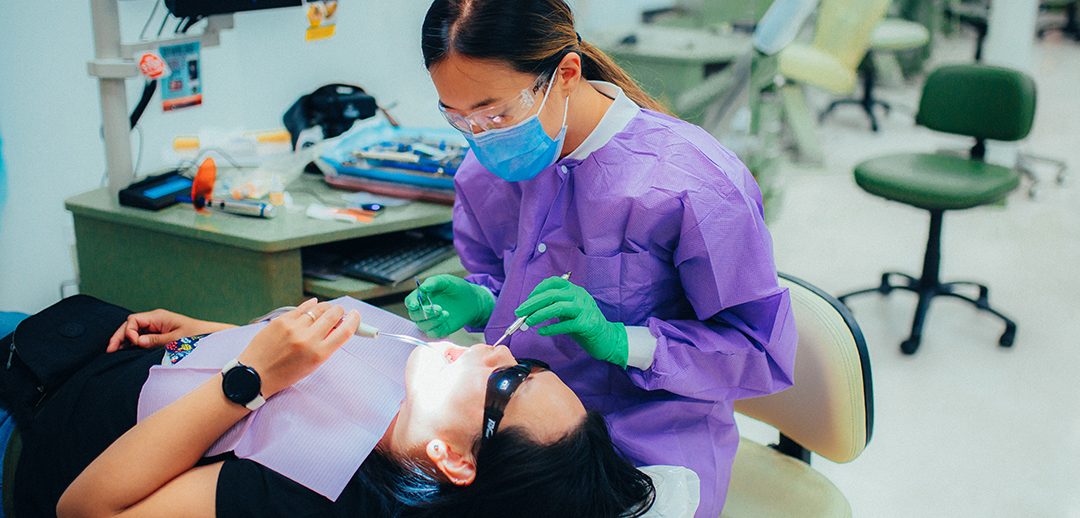
James M. Broadbent, DDS, MS
Associate Professor of Dental Medicine
Dr. James M. Broadbent joined Roseman University of Health Sciences in 2009 (the first year of orthodontic residency training) as a full-time faculty member in the Advanced Education in Orthodontics and Dentofacial Orthopedics/MBA (AEODO/MBA) Residency Program. At Roseman, he is course director of several modules of learning. He serves on University faculty senate and several committees. His professional and research interests include phase I orthopedic growth modification, functional jaw orthopedics, accelerated orthodontics, facial esthetics, and air way and temporomandibular joint disorders.
Dr. Broadbent graduated from Brigham Young University with a Bachelor of Science (BS) degree in Zoology. Dr. Broadbent received his Doctor of Dental Surgery (DDS) degree from the Northwestern University Dental School in Chicago. He completed a dental specialties internship at the Chandler Medical Center, University of Kentucky. He then served as an Assistant Professor of Crown and Bridge at Northwestern University Dental School and practiced general dentistry prior to dental specialty training. Dr Broadbent received his Master of Science (MS) degree and Certificate in Orthodontics from Northwestern University.
Dr. Broadbent practiced orthodontics many years in Provo, Utah, and served as adjunct faculty at Utah Technical College (now Utah Valley University), American Institute of Medical Dental Technology, and Provo College. Dr. Broadbent made a significant contribution to the art and science of orthodontics in teaching numerous continuing education courses, seminars, and presentations at local, state, and national and international dental meetings, and university graduate training programs. Along the way, he was awarded the Joseph E. Johnson Outstanding Table Clinic, American Association of Orthodontists, and twice the (AAFO) J. Robert Bronson Clinician of the Year award.
Dr. Broadbent completed board certification in orthodontics, achieving the status of Diplomate, American Board of Orthodontics. His interest and training in temporomandibular joint disorders and oral facial pain lead to achieving status of Diplomate, American Academy of Pain Management.
Dr. Broadbent has published many articles in several professional journals. He served as president of the Provo District Dental Society, Utah Dental Association annual program, and president of the Utah Association of Orthodontists.
Dr. Broadbent demonstrates vision and leadership in community organizations and service. He is recognized as a Kentucky Colonel, Commonwealth of Kentucky; member President’s Club, Brigham Young University; Boy Scouts of America distinguished Silver Beaver; and James E. West Fellow. For more than 20 years he served the Boy Scouts of America; Utah National Parks Council (one of the largest National BSA Councils), as Council Jamboree Chairman; National Boy Scout Jamboree, A.P. Hill Virginia (1985, 1989, 1993); and Chair of highly successful Council Events (1996, 2000) and as Utah National Parks Council Commissioner (1987-2000) and UNPC Vice President Program (2000-2003). He earned the distinguished Eagle Scout and Silver Explorer awards.
Dr. Broadbent is a member of the American Dental Association, Utah Dental Association, American Association of Orthodontists, Rocky Mountain Society of Orthodontists, Utah Association of Orthodontists, American Association for Functional Orthodontics, International Association for Orthodontics, and the American Dental Educators Association.
Before joining Roseman University of Health Sciences, he served as attending dentist and adjunct faculty instructor of several courses of education at Salt Lake Community College, Dental Hygiene Program (South Jordan Utah Campus).
Dr. Broadbent is licensed to practice dentistry in California, Nevada, and Utah.
Personal activities include fly fishing, off-road rock crawling motor sports, over landing motor sports, and white water river running.


